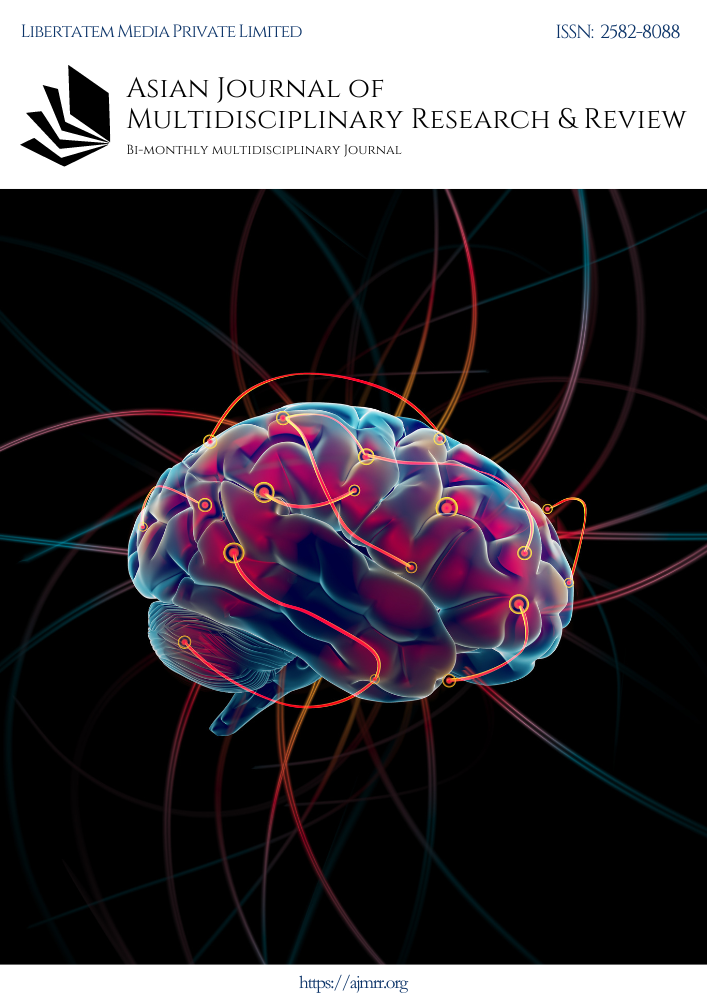PAPER BRIDGE TO JAPAN: REVIEWING THE RELEVANCE OF MANGA IN SPREADING JAPANESE CULTURAL IDENTITY
Abstract
Originally intended to be a leisurely comic strip with paintings and pictorial representations, manga has emerged as a ‘soft power’ of modern-day Japan. As the world’s largest manga exporter today, the country is considered to be a manga superpower. Its influence on a fanbase spread across the globe has proved to be a noteworthy component in developing cross-cultural empathy within the readers. Despite its traction, the genre entered the literati only recently. Many researchers have analysed the influence of Japanese traditions, history as well as culture upon modern-day manga and their adaptations. Several researchers have also attempted to study the intercultural translation of manga and the influence of manga across countries. The growing emergence of cultural studies as a field of enquiry and manga as a cultural and literary product provides the base for the current article.
With the country’s hybrid culture filled with urban and modern legends, myths, traditions and folklore, most of the stories created in manga are steeped in indigenous culture and are combined with modern lifestyle to create a unique reading experience. This renders these graphic novels as cultural products of manga, which are commodified and read throughout the world. The present article acts as a review of contemporary research in the field of manga as a cultural product and identifies its relevance in spreading Japanese cultural identity, thereby contributing to a global cultural identity. The study opens up new lenses to look at manga as cultural products of the 21st century and broadens the scope of recognizing individual and collective manga series for further research as expounders of Japanese cultural identity.
Downloads
Downloads
Published
Issue
Section
License

This work is licensed under a Creative Commons Attribution-NonCommercial-ShareAlike 4.0 International License.
License Terms
Ownership and Licensing:
Authors of research papers submitted to the Asian Journal of Multidisciplinary Research & Review (AJMRR) retain the copyright of their work while granting the journal certain rights. Authors maintain ownership of the copyright and grant the journal a right of first publication. Simultaneously, authors agree to license their research papers under the Creative Commons Attribution-ShareAlike 4.0 International (CC BY-SA 4.0) License.
License Permissions:
Under the CC BY-SA 4.0 License, others are permitted to share and adapt the work, even for commercial purposes, as long as proper attribution is given to the authors and acknowledgment is made of the initial publication in the Asian Journal of Multidisciplinary Research & Review. This license allows for the broad dissemination and utilization of research papers.
Additional Distribution Arrangements:
Authors are free to enter into separate contractual arrangements for the non-exclusive distribution of the journal's published version of the work (e.g., posting it to institutional repositories or publishing it in books), provided they acknowledge the initial publication of the work in the Asian Journal of Multidisciplinary Research & Review.
Online Posting:
Authors are encouraged to share their work online (e.g., in institutional repositories or on personal websites) both prior to and during the submission process to the journal. This practice can lead to productive exchanges and greater citation of published work.
Responsibility and Liability:
Authors are responsible for ensuring that their research papers do not infringe upon the copyright, privacy, or other rights of any third party. The Asian Journal of Multidisciplinary Research & Review disclaims any liability or responsibility for any copyright infringement or violation of third-party rights in the research papers.



